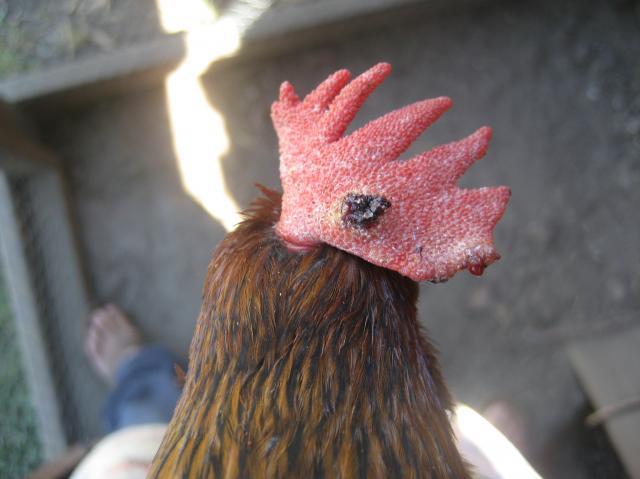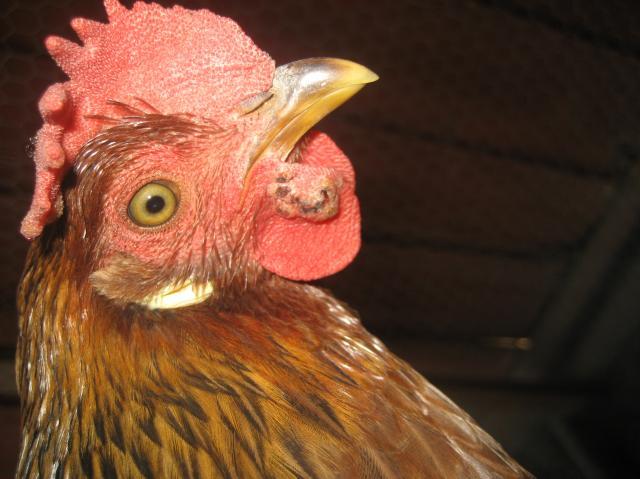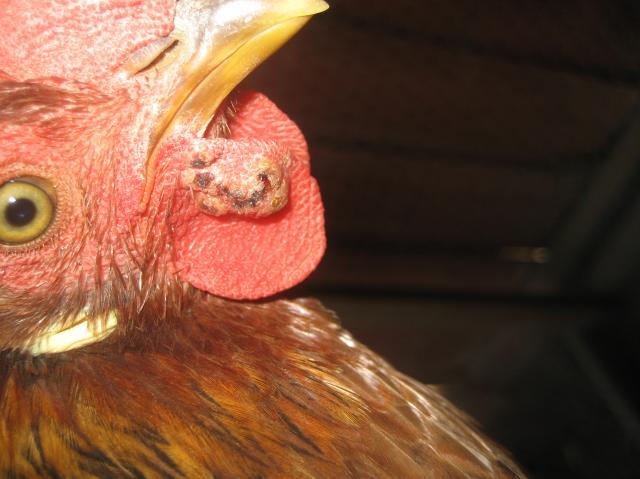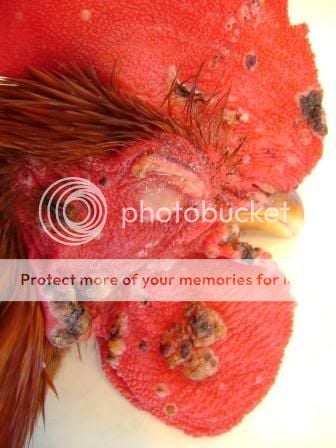I noticed the other day that one of my girls had a black sore on her wattle and assumed she got pecked by someone else. Today I went out to gather eggs and noticed that all of them had at least one sore on the wattle or comb, one of the girls in particular had a lot. What is this and how do I treat it? All 5 girls have it in some degree.
Here are a few pics of Mulberry and her sores, she has them the worst.



Here are a few pics of Mulberry and her sores, she has them the worst.





